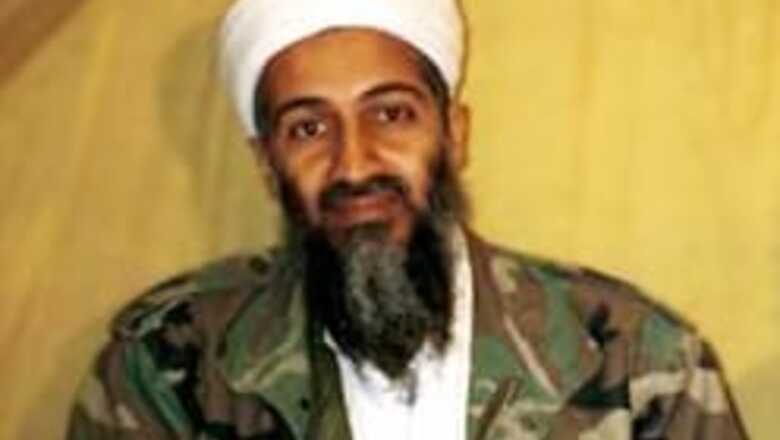
views
Washington: Osama bin Laden may be the leading symbol of global Islamist militancy but the al-Qaeda leader wields less influence over Islamist ideology than more obscure religious thinkers, according to a new study issued on Wednesday.
The study also found that Ayman al-Zawahri, bin Laden's second-in-command, appears to be insignificant among Islamist intellectuals despite his image as a driving force behind the al-Qaeda network.
The Militant Ideology Atlas, compiled by the Combating Terrorism Center at West Point, instead showed Palestinian cleric Mohammed al-Maqdisi as the most influential living Islamist thinker.
Maqdisi, reportedly a mentor to the late al-Qaeda in Iraq leader Abu Musab al-Zarqawi, is currently in prison in Jordan.
The Combating Terrorism Center is part of the West Point military academy that trains officers for the US Army. Its chairman is retired General Wayne Downing, a former US special operations commander-in-chief.
The center's study examined popular books and articles posted on al-Qaeda websites over the past year. It listed nearly 60 modern authors, including President George W Bush and former President Richard Nixon, who were cited most often in online postings.
Bin Laden appeared among nine authors tied for fourth place on the list.
Zawahri was not listed.
“Not surprisingly, bin Laden makes our list of influential ideologues, although he matters much less in the intellectual network than Maqdisi and others,” the study's authors said.
“His lieutenant, Zawahri, often portrayed by Western media as the main brain in the jehadi movement, is totally insignificant in the jehadi intellectual movement,” they added.
“To be sure, both men have had an enormous impact on the wider jehadi movement. But our data shows that they have had little to no impact on jehadi thinkers."
The distinction is important because US intelligence officials and independent analysts say the future of the Islamist movement depends on a vigorous religious intellectual debate about violent resistance that is occurring increasingly on the Internet.
Current and former intelligence officials say the Bush administration has been loathe to influence the discussion directly because of the United States' lack of credibility in the Muslim world.
But Washington has sought to support efforts by Muslim countries, from Egypt to Malaysia, to challenge religious arguments that advocate suicide bombings and the killing of innocents, two of the debate's most heated subjects.
The West Point study said Islamists who advocate violence could be discredited by West Asia clerics who subscribe to Salafism, the form of Islam from which al-Qaeda and other militant groups draw their legitimacy. Violent militants are a minority within the Salafi community.
“Salafi scholars particularly Saudi clerics are best positioned to discredit the movement,” the study said.
“Given the influence of these men, they are best positioned to convince jehadis to abandon certain tactics."


















Comments
0 comment